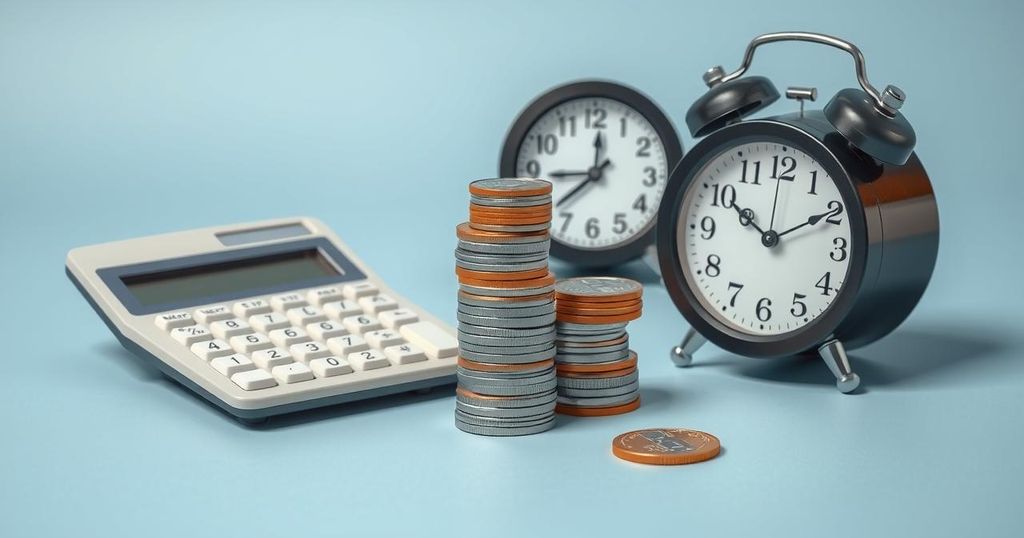Nigeria’s $500 Million Health Loan Repayment: Key Insights and Future Implications
Nigeria will repay a $500 million health loan from the World Bank between 2029 and 2054, designed to enhance primary healthcare services. The loan has a structured repayment plan, with concerns about existing external debt and currency depreciation. Additional loans totaling $1.13 billion may be approved by March 2025 for projects addressing nutrition, economic resilience, and education reform.
The Nigerian Federal Government is set to commence the repayment of a $500 million concessional loan from the International Development Association starting in 2029, with the full repayment expected to continue until 2054. This financing agreement, obtained by Sunday PUNCH, is part of the Nigeria Primary Healthcare Provision Strengthening Programme (HOPE-PHC), which is aimed at enhancing primary healthcare services, with a focus on maternal and child health, emergency medical care, and pandemic preparedness.
The management of the loan’s funds will fall under the purview of the Federal Ministry of Health and Social Welfare, working alongside major agencies such as the National Primary Healthcare Development Agency and the National Health Insurance Authority. Additionally, state governments will integrate their respective Ministries of Health and other healthcare entities to implement the necessary projects under this programme.
The established repayment plan outlines that Nigeria will make biannual payments of the loan, occurring on April 15 and October 15 each year. From 2029 to 2049, the principal will attract an annual interest of 1.65 percent, which will then increase to 3.40 percent from 2049 until the loan’s closure in 2054. Furthermore, a commitment charge of 0.5 percent applies to any unwithdrawn funds, along with a service charge of 0.75 percent on withdrawn portions.
Significantly, total repayment costs may be affected by currency conversion fluctuations. The disbursement of funds will be contingent upon achieving specific healthcare performance indicators. These objectives include improving access to primary healthcare, expanding emergency obstetric care, enhancing the supply of essential medications, and bolstering Nigeria’s ability to respond to pandemics.
A considerable segment of the loan will also focus on advancing digital health infrastructure and enhancing climate resilience in the health sector, while ensuring greater enrollment of at-risk populations in health insurance plans. Despite the favorable terms, there are concerns regarding Nigeria’s increasing external debt against the backdrop of ongoing depreciation of the naira, which could inflate local currency repayment costs throughout the 25-year duration.
The loan was officially endorsed on September 26, 2024, establishing a projected operational period starting in fiscal year 2025 and concluding by June 30, 2029. If unextended, the programme will effectively operate for a four-year period prior to the long repayment phase.
Future financial assistance appears promising, as reports indicate the World Bank may approve up to $1.13 billion in loans to Nigeria before March 2025. Proposed projects include the $80 million Accelerating Nutrition Results in Nigeria 2.0 programme aimed at enhancing access to nutritious food for vulnerable groups, and a $500 million Community Action for Resilience and Economic Stimulus Programme, focusing on community-driven economic initiatives.
Additionally, the HOPE for Quality Basic Education for All programme seeks $552.2 million to improve basic education quality by addressing infrastructural shortcomings and boosting teacher training. As Nigeria continues to confront economic hurdles, including exchange rate fluidity and fiscal deficits, the Central Bank of Nigeria reports that the country has incurred $5.47 billion in external debt servicing between January 2024 and February 2025, underscoring the burden of its debt obligations on fiscal stability and external reserves.
In summary, Nigeria has entered into a significant financing arrangement with the World Bank, securing a $500 million loan to bolster its healthcare system over the next 25 years. While the loan aims to improve vital healthcare services, concerns about escalating debt and currency volatility persist. Moreover, the potential for additional World Bank loans highlights ongoing efforts to strengthen Nigeria’s economic resilience amid various challenges.
Original Source: punchng.com




Post Comment